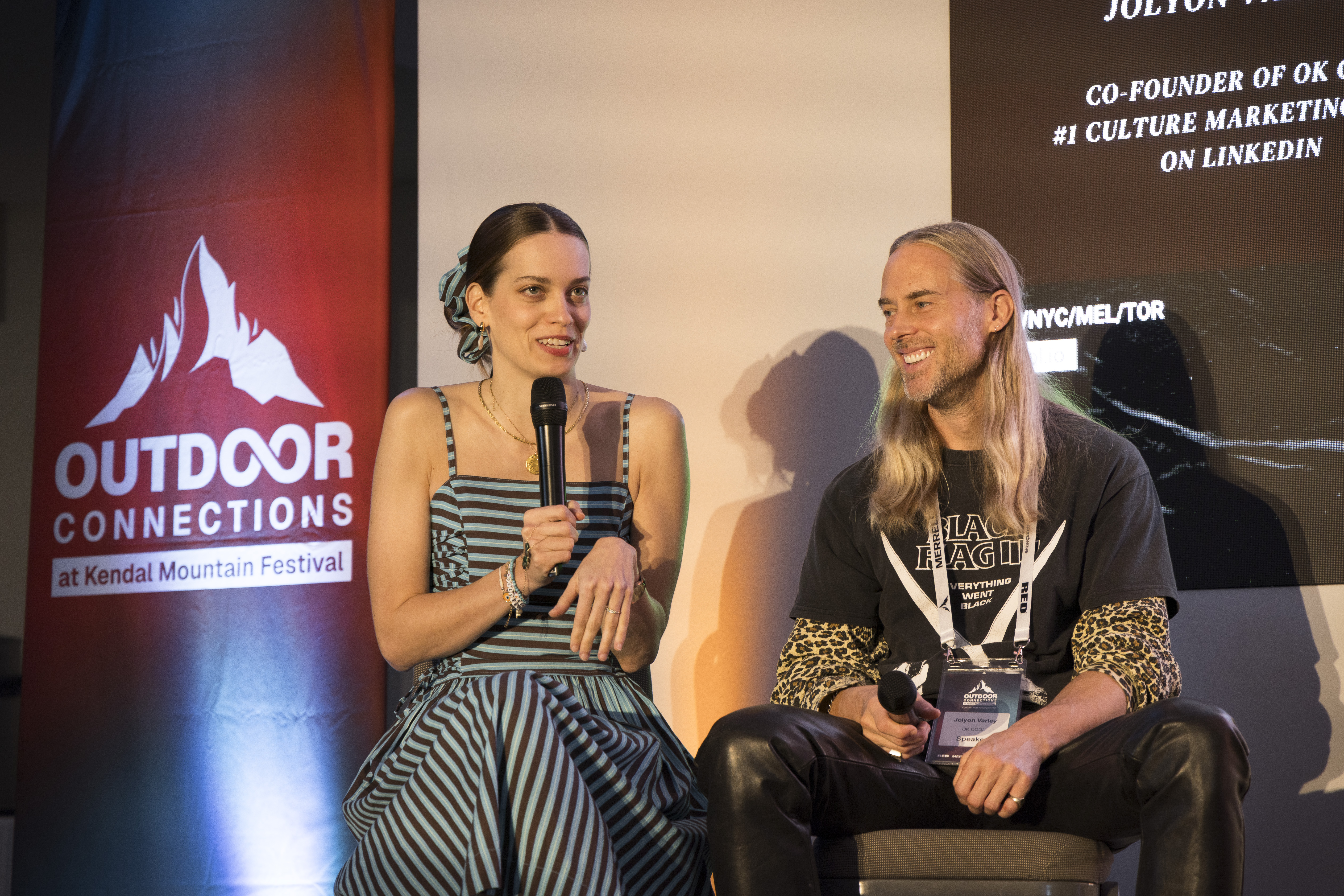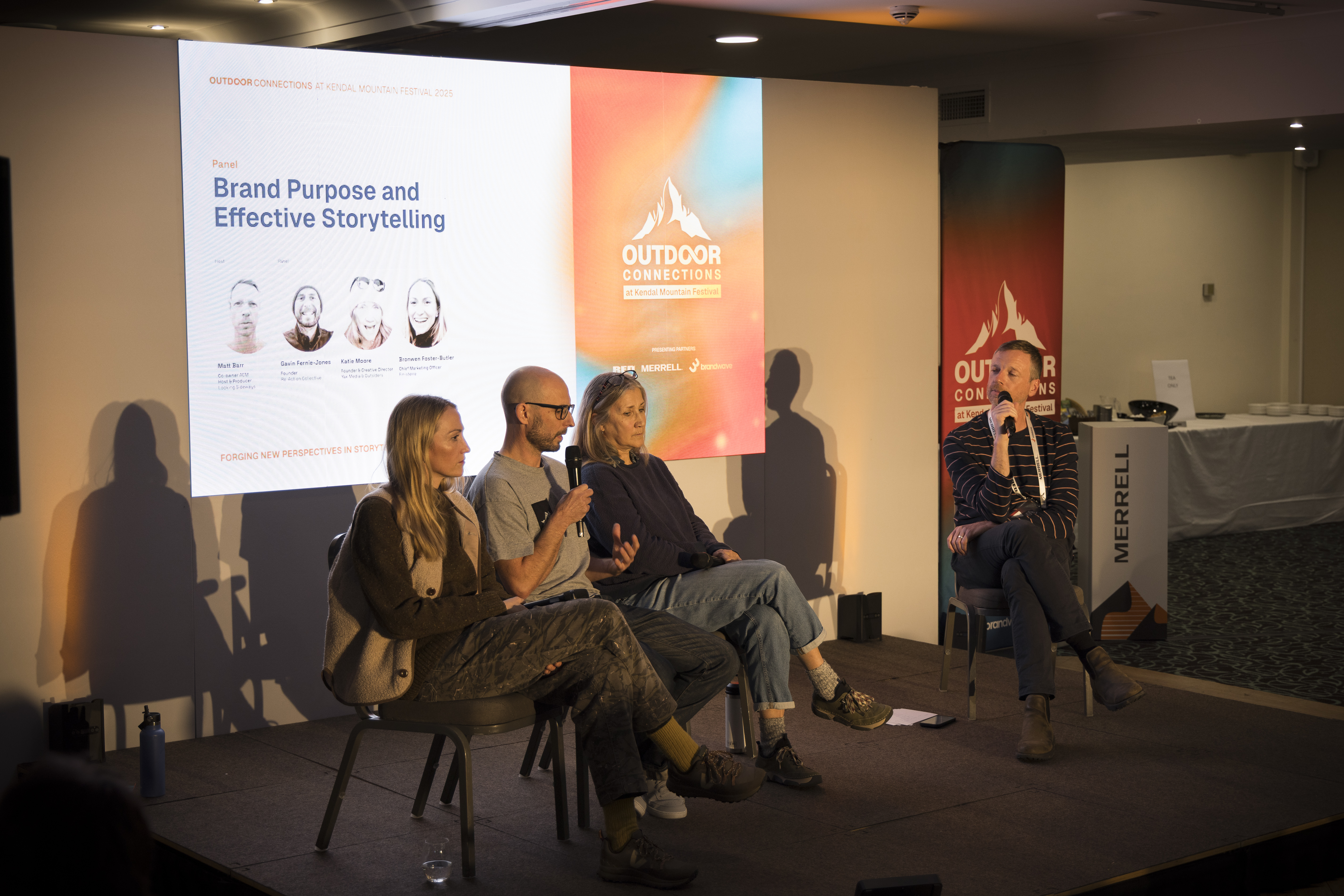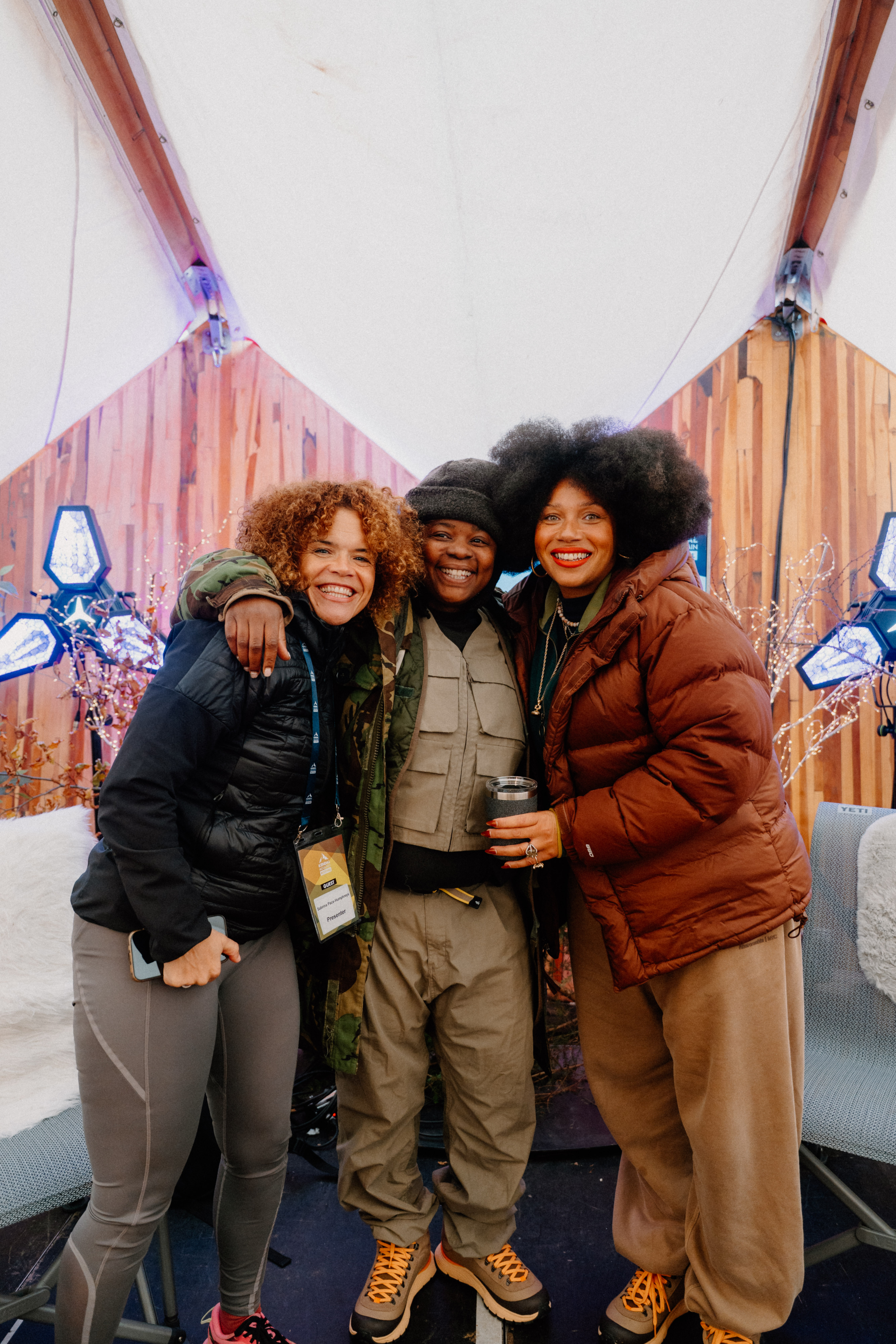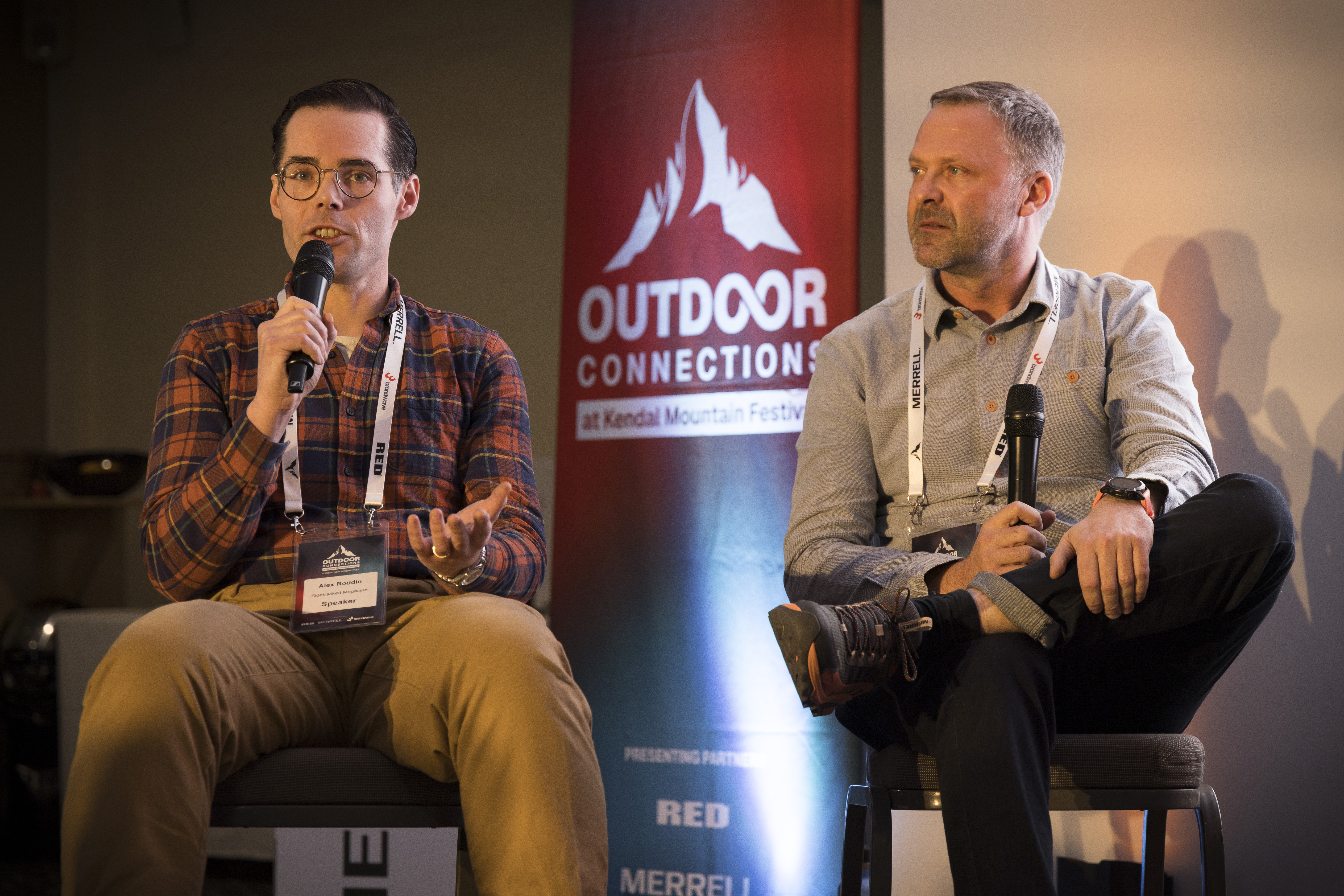Opinion: Why Patagonia's Data Reveals An Uncomfortable Truth For Purpose Brands
25 November 2025
If you’re at all paying attention, one of the things you quickly learn working in the outdoor industry is how much hidebound thinking there is among brands and marketers.
So the progressive roster and format pulled together by organisers Steve Scott and Joe White for Outdoor Connections, Kendal Mountain Festival’s first attempt at an industry B2B summit, is to be applauded.
Perhaps this is why the take-up among the outdoor industry’s assorted marketing departments, NGOs and agencies (including my own, All Conditions Media), was so strong.
170 people attended, and the resulting day of panels and discussions revealed much about where the outdoor and adventure industries stand on a number of essential modern topics.
Fresh thinking is already here

Kendal Mountain Festival always has a theme, and this year’s was Hope. Personally, I took much hope from some particularly inspiring chats I had over the course of the weekend itself, and some of the contributions I witnessed at the Outdoor Connections event.
One of the reasons I invited Re-Action founder Gavin Fernie-Jones to take part in my Outdoor Connections panel on the topic of 'Brand Purpose and Storytelling', for example, is because his take on the stories the outdoor industry should be telling is so original and defiantly none brand-centric.
As I hoped it might, his articulate and emotional take on this most ubiquitous of modern marketing discussions gave the audience much to ponder.
Other highlights? A late night exchange with Tijana from Female Narratives, during which she explained how dreadful mistreatment of talent during her modelling career had been the catalyst to start her brilliant Female Narratives agency.
Like everybody, I enjoyed the contribution of Jeffrey Bowman of OTSDR Studio, who got the biggest laughs of the day during his ‘Shut Up and Start Talking’ presentation.
And I was inspired by Kesang Ball of Trippin’, whose ‘Contribute to Culture Without Extracting From It’ talk I found a useful and provocative counterpoint to some of the more transactional points raised earlier in the day.
These thought-provoking interactions continued throughout the weekend, and I left Kendal with the - yes - hopeful conviction that a new generation of entrepreneurs and thinkers are already shaping the way we will have these conversations in the future.
Patagonia still looms large over any discussion around brand purpose
 In my January 2025 podcast series, The Announcement, I used Patagonia’s decision to make ‘earth’ their only shareholder as a lens through which to explore a number of key modern topics of discussion: the democratic impact of unelected billionaires, the reality of ‘business for good’, the current state of philanthropic capitalism, among others.
In my January 2025 podcast series, The Announcement, I used Patagonia’s decision to make ‘earth’ their only shareholder as a lens through which to explore a number of key modern topics of discussion: the democratic impact of unelected billionaires, the reality of ‘business for good’, the current state of philanthropic capitalism, among others.
Yet the conversation has always been missing something significant— a data-led analysis of what the brand's move has actually achieved on the ground.
Thus, when Patagonia released their first Impact Report in the weeks leading up to Outdoor Connections, I was curious to understand how these findings would influence the panel on brand purpose I was scheduled to host with Re-Action’s Gavin Fernie Jones, Finisterre CMO Bronwen Foster-Butler, and Katie Moore of Yak Media.
As is always the case whenever Patagonia make moves in this arena, in the days that followed my LinkedIn was awash with binary, surface-level hot takes, many of which were the usual fan-boy and girling, but without any analysis of the actual numbers.
Perhaps this is because the report contains some truly challenging numbers around the reality of Patagonia’s impact, as well as confirming an uncomfortable reality: how difficult it will be for any brand to make an impact of any real significance.
As I discussed with my panel, among the data, the report reveals something stark: that any business approaching ‘purpose’ as a purely storytelling proposition is missing the point dramatically.
After all, if the one brand that has geared their entire organisational structure towards achieve these goals can’t pull this off, then what hope for everybody else?
As ever, Patagonia’s transparency and leadership are to be applauded. What will be interesting is seeing who goes beyond the hot takes and actually engages with the harsh lessons Patagonia is so generously sharing with the rest of the outdoor and fashion industries - and what influence this will have on the industry’s direction of travel in the coming years.
Access matters more than ever
 A perennial theme at brand-led events such as Kendal Mountain Festival, but a significant change of tone this year. Personally, I took valuable lessons from the live interviews I conducted with two influential creative leaders: filmmaker Orlando von Einsiedel, and wildlife presenter and scientist Dan O’Neill.
A perennial theme at brand-led events such as Kendal Mountain Festival, but a significant change of tone this year. Personally, I took valuable lessons from the live interviews I conducted with two influential creative leaders: filmmaker Orlando von Einsiedel, and wildlife presenter and scientist Dan O’Neill.
In my Saturday afternoon interview with von Einsiedel, for example, the Oscar-winning documentary maker described how he considers the ethics of access to be one of the most important aspects of his work, describing in fascinating detail how these considerations had influenced the improvisatory creative approach he’s taken with his remarkable new film The Cycle of Love.
It was a view echoed by fast-rising wildlife presenter and scientist Dan O’Neill, who I interviewed at a riotous late Sunday afternoon session for my now traditional Looking Sideways live KMF slot, and who spoke authoritatively about this key topic, explaining how collaborations with the communities he works with across Asia and South America are a key tenet of his pioneering wildlife film-making.
Away from the stage, I was lucky enough to have similarly insightful individual chats with Alice Sainsbury, a designer who is challenging the outdoor industry, which still takes an ableist approach to product design by default, to bring access and inclusion much more to the forefront; and Sabrina Pace-Humphreys, the activist and cofounder of Black Trail Runners, who led an insightful panel with community fishing collective We Are Blackfish, at which access was also a key theme. Sabrina is also at the sharp end of conversations with brands on this topic, and her insights into where they continue to fall short were instructive and illuminating. The conclusion? Talented, driven individuals and organisations are already out there leading this particular conversation. Brands and agencies should listen, learn and give them the platforms to take these stories far and wide.
It’s time for a new take on AI - and where were the women?

The more I hear people in marketing and brand circles discuss AI, the more it becomes apparent that there are very few original takes on this most hackneyed of modern topics.
At Outdoor Connections, part of the discussion was yet again given over to this commonplace idea that AI is a technological inevitability that pragmatic businesses must embrace, rather than the late-stage capitalism data-and-attention-span land grab it so obviously is.
Let’s be clear - none of this is ‘inevitable’. As ever, it originates with clever people sitting in rooms and devising ways to sell their products to the rest of us (in this case with particularity consequential and globally significant sophistication).
It would be great to attend a panel (especially at an event full of marketers!) where this rather obvious truth was acknowledged and discussed.
As Gavin Fernie-Jones pointed out during our discussion, the story we tell is always a choice. And we have the power to change it whenever we want. Especially if we work in marketing.
So thank goodness for journalist and panelist Alex Roddie, editor of Sidetracked and Like The Wind magazines, and ‘defiant generative AI party-pooper’.
Alex’s articulate, impassioned points about the impact these tools will have on actual humans, and the creative work so many people in the room claim to cherish, injected a much-needed note of moral clarity into what risked becoming yet more one-dimensional AI boosterism.
And why were there no women on this particular panel? On a day that had clearly been painstakingly curated, this was a rare misstep.
It’s too early to say if Outdoor Connections was a success. Next year will be the real challenge
I have a long-established scepticism about the number of outdoor-adjacent purpose industry conferences that have proliferated in recent years.
They tend to platform the same people, who have the same discussions in front of the same audiences, with very little actual - well - change resulting at the end of it all.
That’s why, despite the cautious optimism of this first Kendal b2b event, it is too early to call Outdoor Connections a success. And as they begin to think about next year, the organisers should be asking themselves how they can avoid this trap.
Beyond the cash it could potentially make for the organisers, there’s little point in an event like this if it doesn’t lead to actual progress, and make a difference to the way the outdoor industry and brands contribute to or lead these conversations.
Otherwise it’s just any old back-slapping, networking bash with a fundamental dishonesty at its heart. And the last thing the outdoor industry needs is yet another excuse to mark its own homework.
Whether OC can build upon this promising start, bring in some fresh voices, and evolve to truly achieve something different, will be the real test in 2026.
Matt Barr is co-founder and co-owner of All Conditions Media (www.allconditionsmedia.com), an outdoor and action sports focussed agency which runs creative comms campaigns for clients including Arc’teryx, Berghaus, adidas, H&M, Dacia, Yeti and Finisterre. He also presents and produces the Looking Sideways podcast. (www.wearelookingsideways.com)

